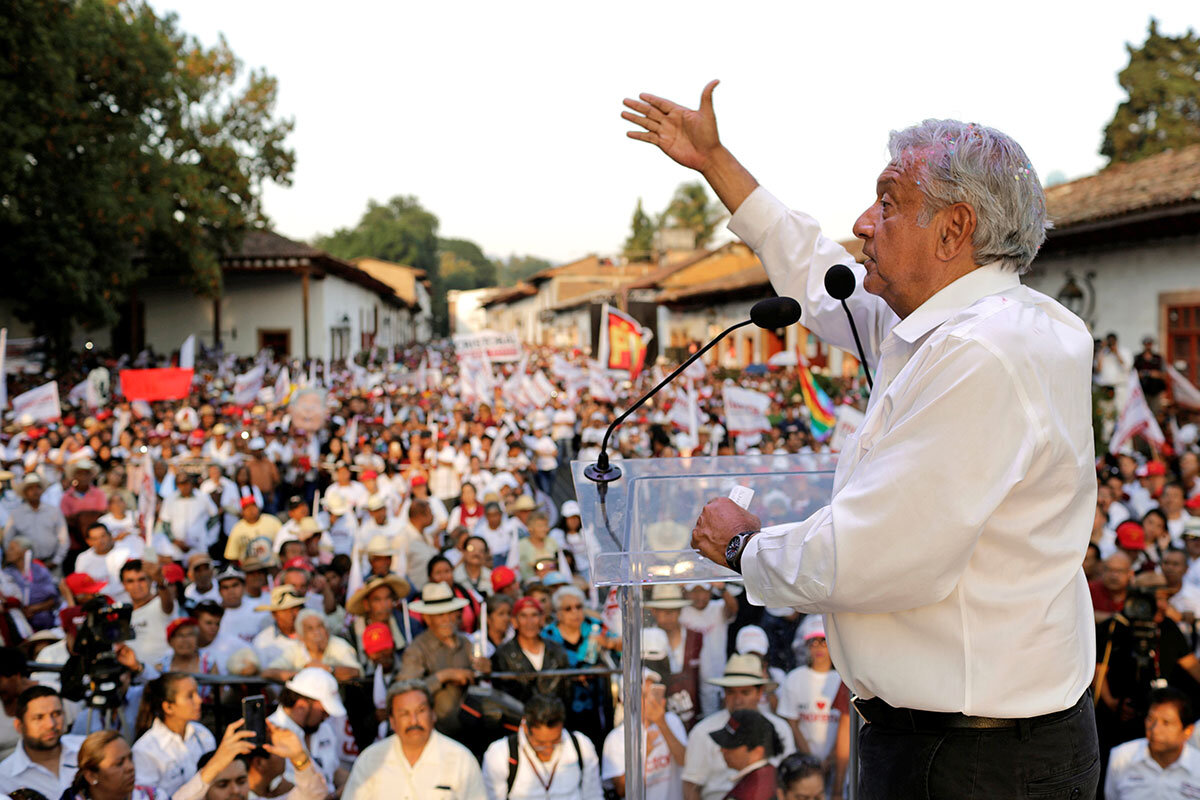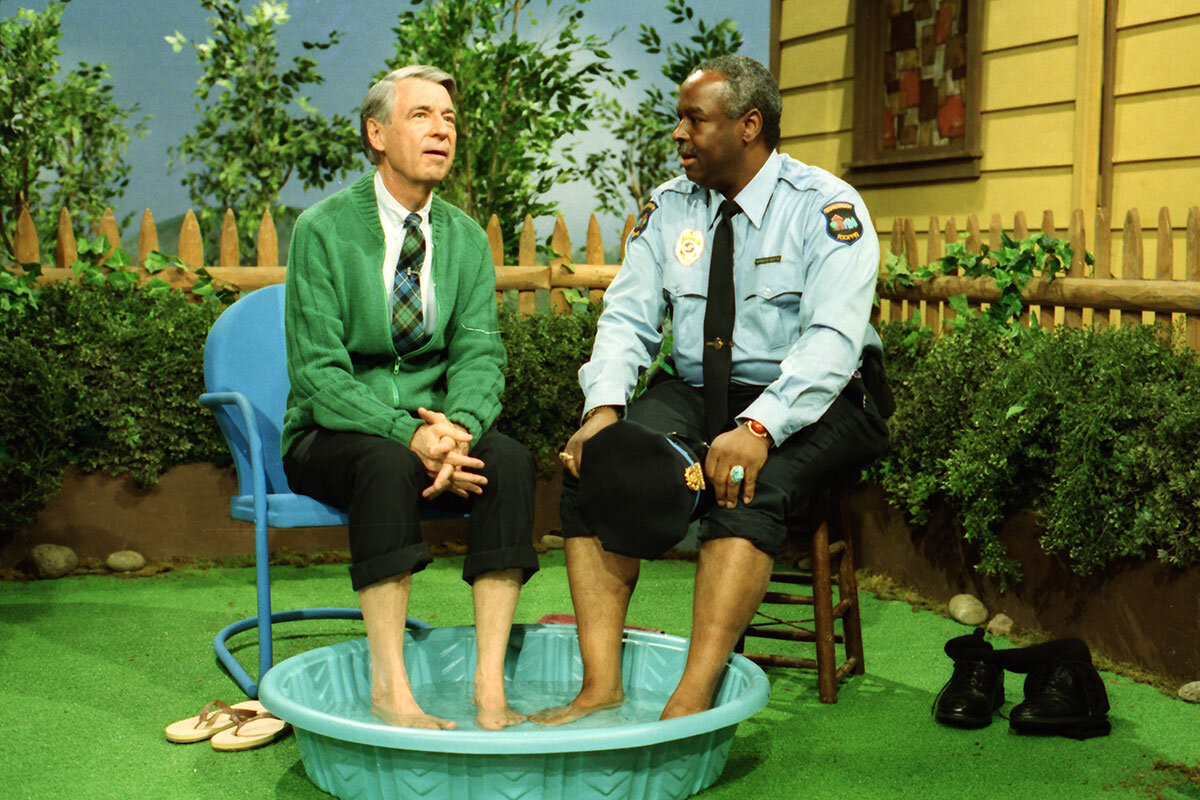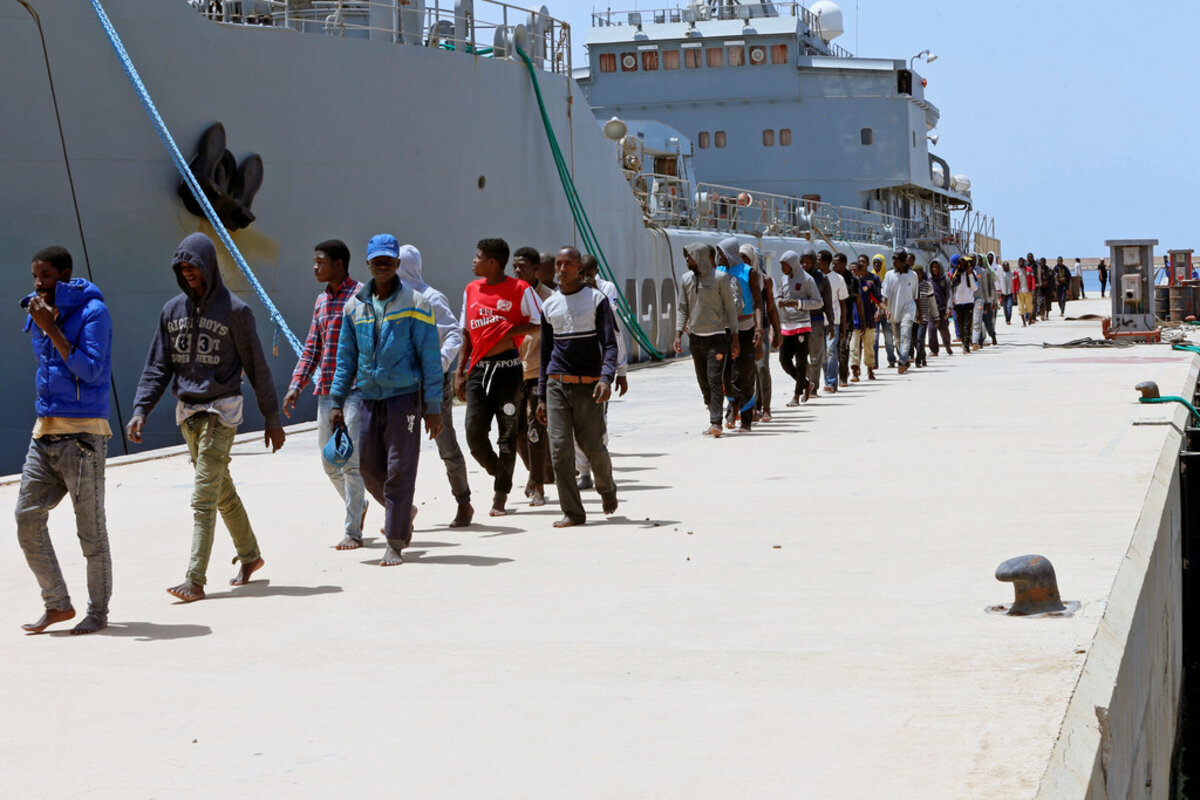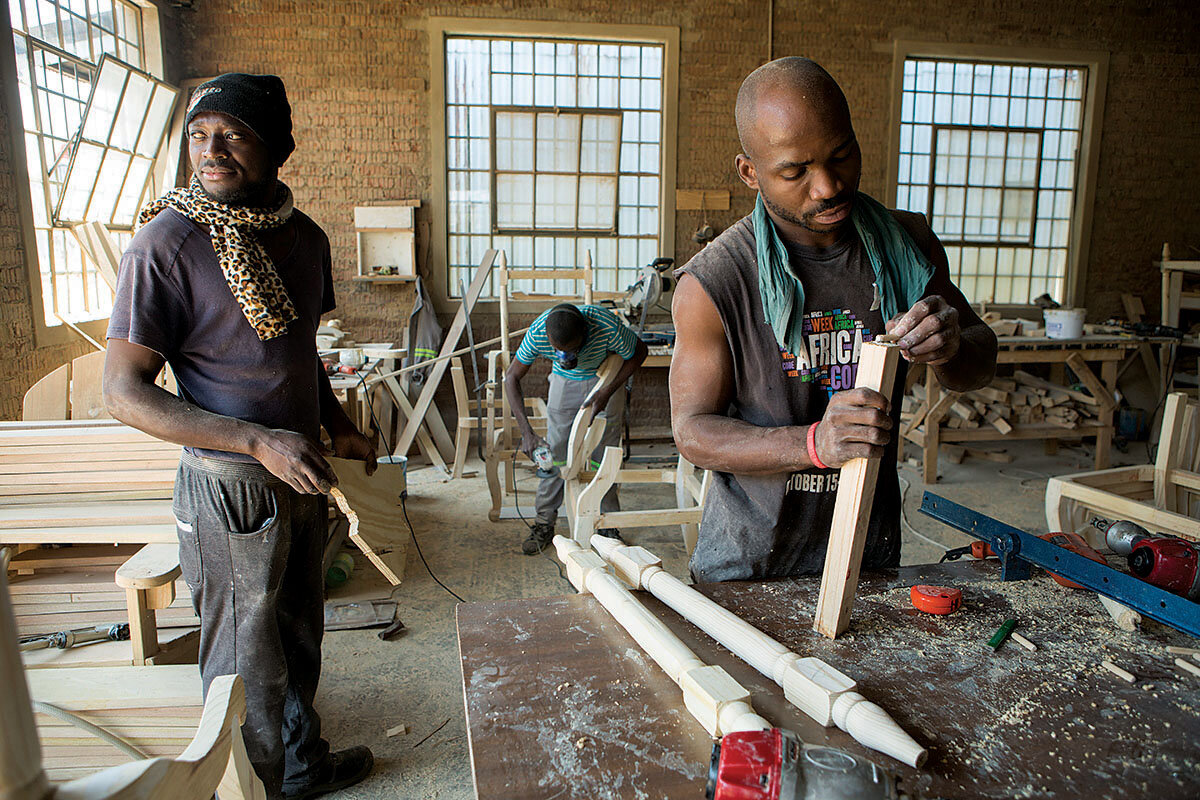The hot-button issues between the United States and Mexico – immigration, trade, the border wall – will shift when a new president is elected July 1. The front-runner is leading with a “Mexico first” approach.��
Monitor Daily Podcast
- Follow us:
 Clayton Collins
Clayton Collins
Anxiety and anger keep trying to box out humanity.
The killing of five people yesterday in a Maryland newsroom appears to have been rooted in personal grievance, the suspected shooter’s sense of having been defamed.
What it cost us: people like , who was described by Capital Gazette colleagues as a low-key editorialist who toiled in a signature V-neck, and who surprised and delighted them when he announced his late-life marriage to a Mongolian opera singer. Like , a self-described proud Navy mom who left behind her own New York boutique fashion and public relations firm to become a prolific and good-natured chronicler of others’ achievements.��(Read the bios of the five slain newspaper staffers .)
This week the world bristled with anxiety and anger over humans’ desire to move in order to improve their lot. It bristles unabated even though the situation at the US-Mexican border is than some make it out to be – .��
But it’s humanity that provides the bright counterpoints. A faith community – the Islamic Society of Tampa Bay, in Florida – now in detention and provide them with a “safe and loving environment” until they can rejoin their families. The effort is supported by the Florida Council of Churches and others.
Also this weekend: a reminder that self-determination can’t be stifled. Daisy Kadibil, an Aboriginal Australian more than 80 years ago by an assimilation policy, will have a private funeral tomorrow in Jigalong, an indigenous community in the country’s northwest. Daisy, with her sister and a cousin, walked a fence line for nine weeks to get home. Humanity won.
Now to our five stories for today.












